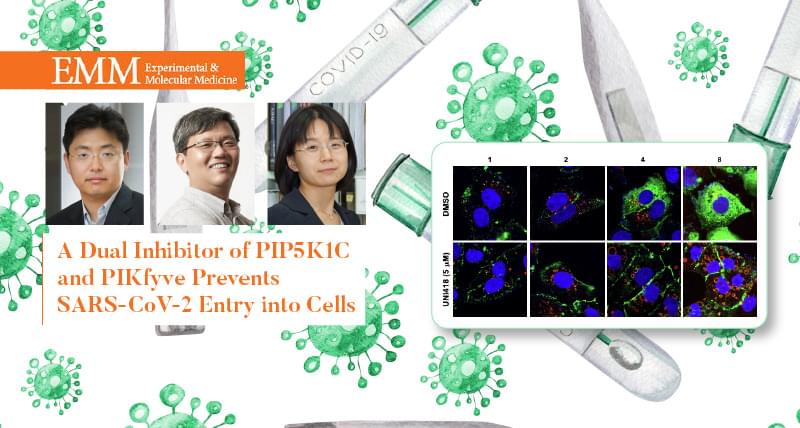The SARS-CoV-2 pandemic has had an unprecedented impact on global public health and the economy. Although vaccines and antivirals have provided effective protection and treatment, the development of new small molecule-based antiviral candidates is imperative to improve clinical outcomes against SARS-CoV-2. In this study, we identified UNI418, a dual PIKfyve and PIP5K1C inhibitor, as a new chemical agent that inhibits SARS-CoV-2 entry into host cells. UNI418 inhibited the proteolytic activation of cathepsins, which is regulated by PIKfyve, resulting in the inhibition of cathepsin L-dependent proteolytic cleavage of the SARS-CoV-2 spike protein into its mature form, a critical step for viral endosomal escape. We also demonstrated that UNI418 prevented ACE2-mediated endocytosis of the virus via PIP5K1C inhibition. Our results identified PIKfyve and PIP5K1C as potential antiviral targets and UNI418 as a putative therapeutic compound against SARS-CoV-2.
Despite the ongoing threat posed by new viruses following the emergence of severe acute respiratory syndrome coronavirus 2 (SARS-CoV-2), which led to the coronavirus disease 2019 (COVID-19) pandemic, new antiviral drugs continue to be developed to effectively block viral entry into the human body.
Professor Kyungjae Myung and his research team in the Department of Biomedical Engineering, affiliated with the IBS Center for Genomic Integrity, has discovered UNI418, a compound that effectively prevents the penetration of the coronavirus. This compound works by regulating dielectric homeostasis, thereby inhibiting the virus’s entry into human cells.
